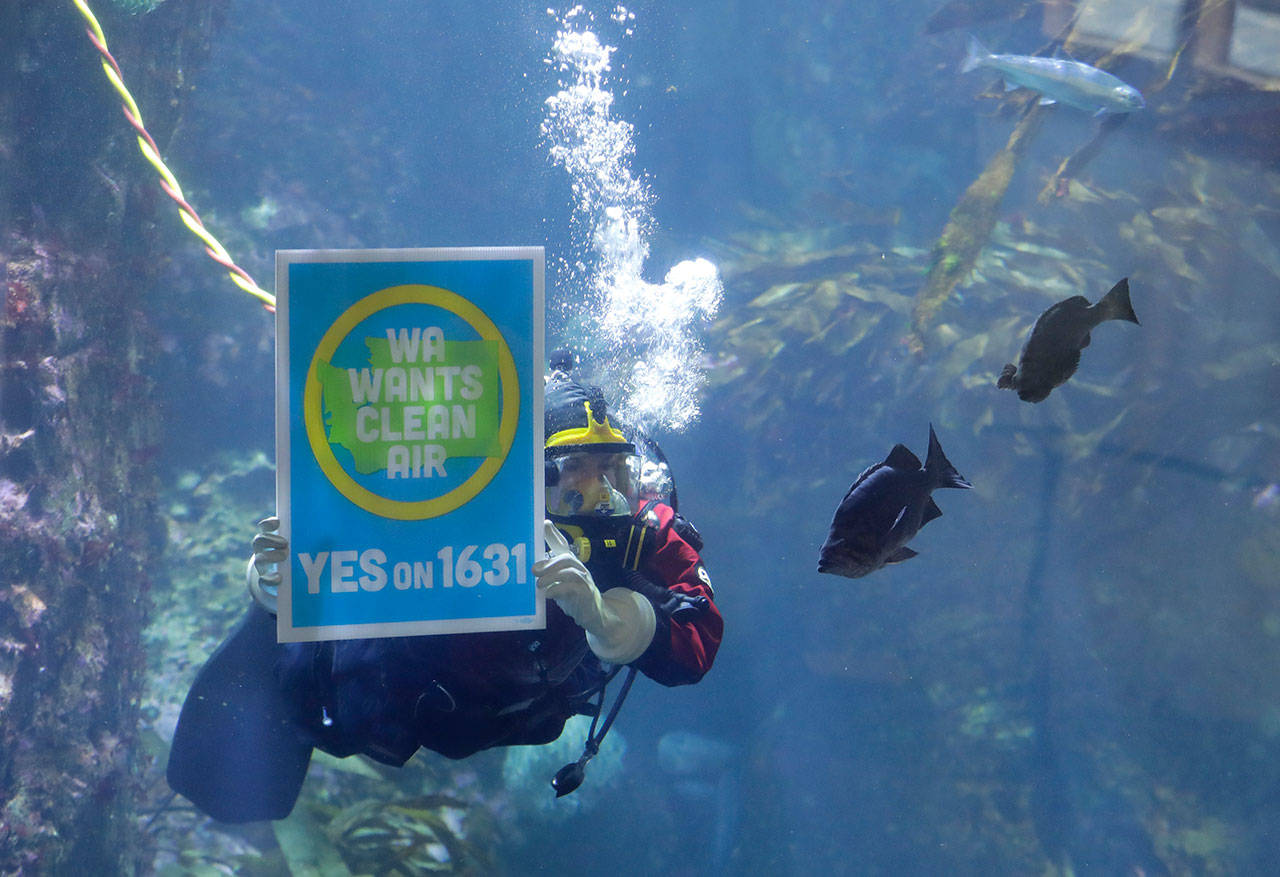By The Herald Editorial Board
Voters are justly cautious when asked to impose a tax on themselves and their neighbors.
In Snohomish County, 54 percent approved a sales tax increase to upgrade the countywide emergency radio system crucial to the work of first responders. But statewide, 55 percent voted to head off local governments from even considering a tax on sugary soft drinks, and 56 percent rejected Initiative 1631, which would have charged a tax on carbon emissions.
Technically, I-1631 sought to establish a fee, rather than a tax, because the revenue it would have raised would not have gone into the state’s general fund but would have directly supported a range of projects and programs to promote and develop alternative energy technologies and other carbon-reduction efforts.
Right or wrong, the campaign against the initiative targeted it as a tax that while paid by polluting industries would be largely passed on to consumers; a regressive tax at that, which would hit the state’s lower- and middle-income families the hardest. It was a difficult argument to counter.
Supporters and opponents differed on how much the costs for gas and heating were likely to increase, but any uncertainty in the minds of voters is usually enough to convince them to stick with the status quo when considering an initiative.
Even so, the oil industry and its refineries, which stood to pay heavily under the carbon fee — $15 a ton in the first year and increasing $2 a ton each year until reaching a set carbon-reduction goal — took no chances and bankrolled a record-setting $31.5 million campaign against I-1631, paid chiefly by oil companies, including BP America, Phillips 66 and Andeavor. For comparison, supporters of I-1631 raised about half as much, nearly $16 million to counter the oil industry’s message.
That $31.5 million sum — and the argument that consumers would pay and not polluters — should tell voters that the oil companies were less worried about families’ pocketbooks and more concerned that the initiative might do as it aimed to reduce carbon emissions by reducing the consumption of fossil fuels and fund development of renewable — and competing — energy resources.
I-1631’s loss at the ballot box, however, shouldn’t be interpreted as a lack of support for the need to address the effects of carbon emissions on the state’s air quality, on the environment and on climate change itself.
An interactive map by the Yale Program on Climate Change Communication, shows that: a majority of Washington state residents believe climate change is mostly caused by human activities; 71 percent trust climate scientists about global warming; 60 percent are concerned about climate change; 76 percent want carbon dioxide regulated as a pollutant; and 82 percent want funding for research into renewable energy sources.
Nor should the initiative’s defeat keep state lawmakers from considering legislation that would fund the types of programs and efforts that I-1631 would have supported, as well as carbon pricing itself. The Legislature should again take up Senate Bill 6230 — the sponsors for which included the region’s Sens. Guy Palumbo, D-Maltby; John McCoy, D-Tulalip; and Marko Liias, D-Everett — which would have established a similar carbon fee and funding for carbon-reduction efforts.
Opponents of I-1631 are on the record as saying they agreed with the need for a reduction in carbon emissions. Nor did they dismiss consideration of some form of carbon pricing; their stated reasons were based on what they considered to be a flawed proposal that didn’t treat all polluters equally and was not accountable to the public, arguing that a better plan was needed.
Washington state residents — and lawmakers — should hold the No on I-1631 campaign to its stated support for that better proposal.
The campaign and its oil industry contributors could start by donating to that effort with a dollar-for-dollar match of their ad campaign against I-1631. A $31.5 million fund, including money for a public education campaign on the benefits of carbon reduction and ways to achieve it, could prove very effective.
Talk to us
> Give us your news tips.
> Send us a letter to the editor.
> More Herald contact information.

























